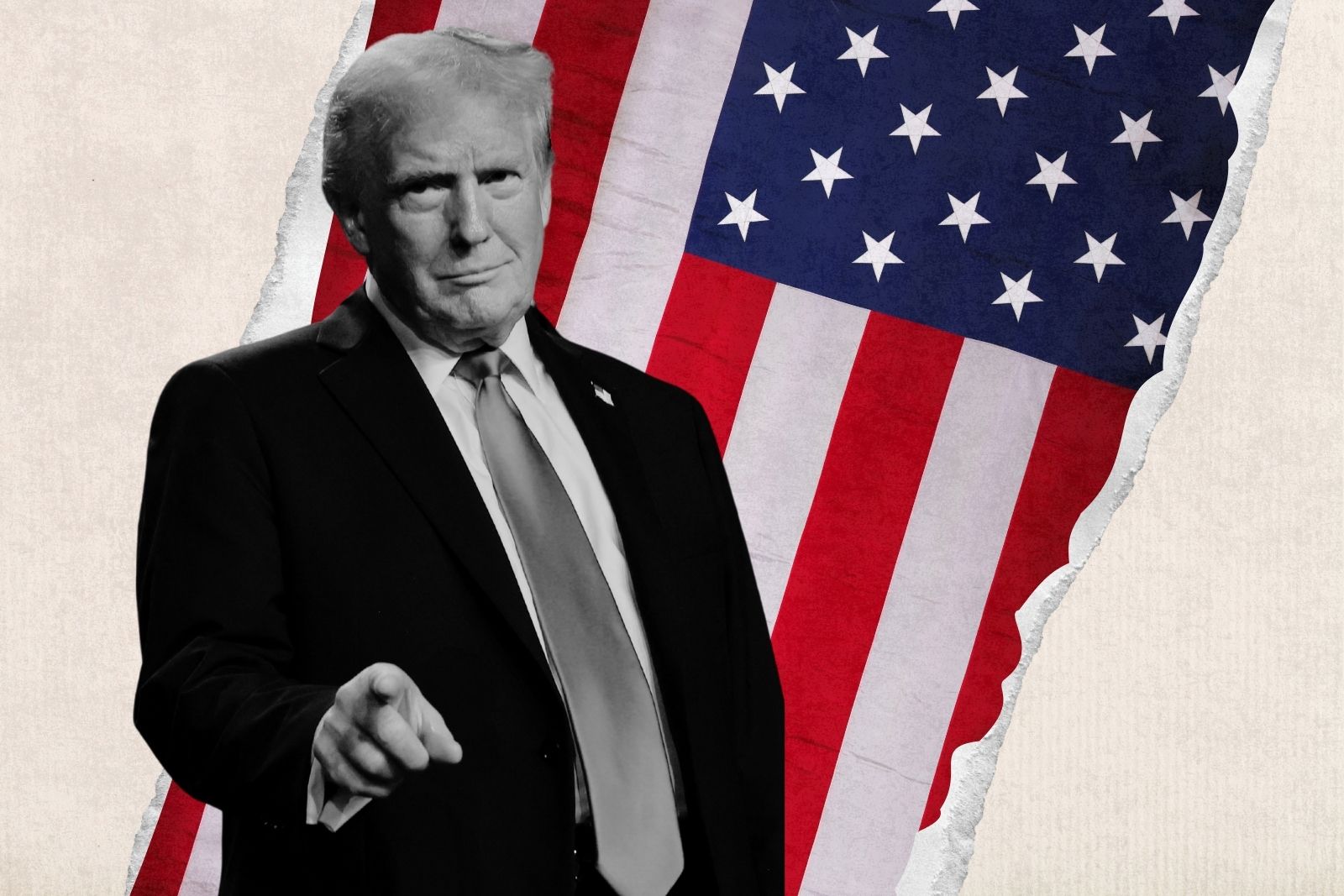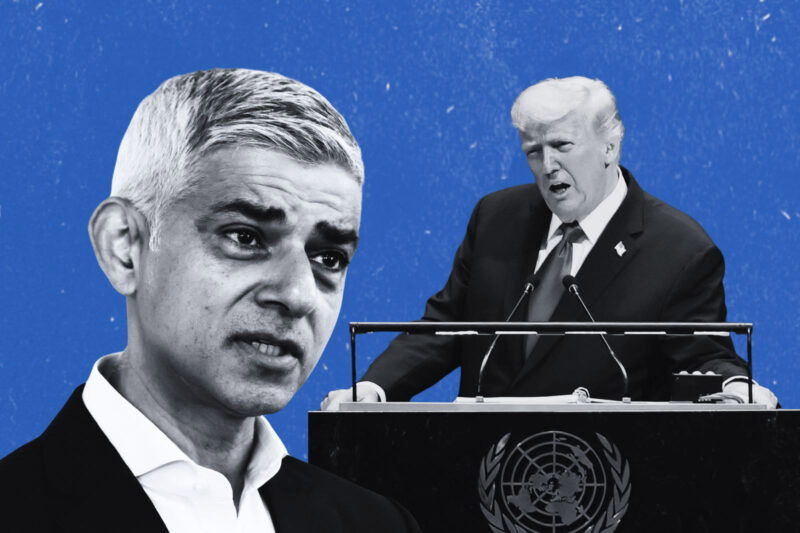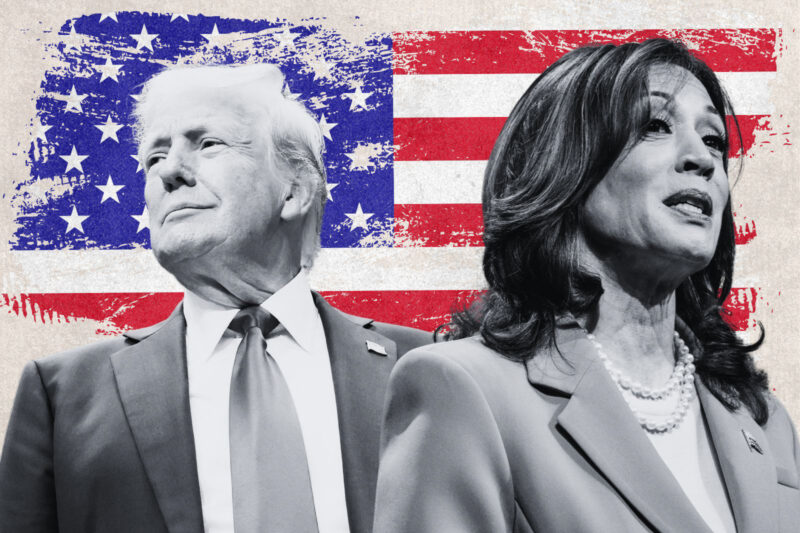Behind the warm words, Labour will worry about a Trump presidency
Keir Starmer faces a struggle to mend his party’s relationship with the president-elect without alienating his base

Despite the odds, the scandals, and relentless controversies, Donald Trump will be back in the White House, once again the most powerful person on Earth.
His re-election as the 47th US president — this time as a convicted felon and a twice-impeached leader — is nothing short of one of the most incredible political comebacks in modern history.
For Muslims around the world, there will be a real sense of worry, especially given Trump’s previous policies and rhetoric. In 2016, Trump’s so-called “Muslim travel ban” drew widespread condemnation, and his assertion that “Islam hates us” left deep wounds. During his first term, Trump’s administration often cast Muslims in a suspicious light, a position that has continued. JD Vance, now vice-president-elect, recently stirred things up by branding the UK an “Islamist state” under Labour — a remark swiftly rejected by the party but troubling nonetheless.
These concerns are not just confined to voters: they’re on the minds of UK officials and public figures. Today a Labour MP told me they were extremely worried about the ramifications here in Britain if Trump or Vance were to make any drastic anti-Muslim policy decisions, or if they upped their rhetoric, especially in the wake of the Southport riots in the UK.
The response of London mayor Sadiq Khan to Trump’s return to power demonstrates how worried some are. Khan, who has clashed with Trump before, withheld any congratulations and instead issued a statement highlighting worries over the state of democracy, women’s rights, and international stability. By underscoring London’s own diversity, Khan sent a clear message: for many, Trump’s re-election is a real cause for concern.
For Labour leader Keir Starmer, irrespective of what he says, this is far from the victory he had hoped for. Kamala Harris would have offered continuity, predictability, and an approach to policy that is more closely aligned with Labour’s priorities. Now, with Trump back in the driver’s seat, Starmer must work to improve a relationship that is rocky at best.
Although Starmer dined with Trump during his last visit to the US in September, the relationship was immediately tested when a Labour staffer disclosed on the social networking site LinkedIn that 100 current and former party members were heading stateside to campaign for Harris. The revelation triggered a legal complaint from team Trump accusing Labour of “illegal foreign interference”. If there is one thing Trump’s team is known for, it is holding grudges, and Starmer’s camp now faces the task of mending this transatlantic fence.
However, Labour didn’t completely disregard the possibility of a Trump victory. David Lammy, the foreign secretary, has been quietly laying diplomatic groundwork, meeting with key Republicans including Vance. Lammy insists he and Vance “have a lot in common”. For now, these efforts to engage with Republicans represent Labour’s bid to maintain stability in the special relationship and smooth things over.
The importance of Starmer’s relationship with Trump cannot be overstated. The UK relies heavily on American military strength, especially with the ongoing conflict in Ukraine. Trump’s prior remarks suggest he sees no long-term value in supporting Ukraine and might withdraw US support, leaving European allies in a difficult position. His insistence that he could end the war “on day one” is likely to send chills through Nato allies and officials in Kyiv. In this new era of Trump’s leadership, the UK may find itself in a position of dealing with an administration with far less interest in a united western front against Russian aggression. This, in turn, may require Europe to spend more of its own money to fund the war in Ukraine.
And there are serious economic stakes, too. In his previous tenure, Trump frequently toyed with protectionist measures, and Labour’s recent budget announcements hinge on economic growth and trade with the US. Trump has never shied away from saying he will use tariffs, a prospect that threatens potential trade wars. The IMF has already forecast that a Trump tariff policy could wipe 0.8% from global output next year — a move that would undoubtedly hit the UK hard.
Starmer, who has staked much of his economic agenda on growth, will be worried about the prospect of any sort of protectionist US approach. And the ripples extend far beyond economic concerns when it comes to Trump policies. Trump’s divisive approach to social policy and volatile stances on global issues place the UK in an awkward diplomatic position, one where Labour’s core values and Trump’s actions could clash on a regular basis.
The broader international community will be watching closely as well. Allies around the world may be bracing for a potential shift away from diplomatic cooperation to a more unilateral, “America first” approach.
Whether Starmer and Lammy can navigate these challenges without compromising their own values, or straining their party’s relationship with its core base, remains to be seen. But if Trump’s second act is as unpredictable as his first, Labour will need every bit of diplomatic skill and strategy it can muster to maintain this special relationship and reap the benefits of it.
Shehab Khan is an award-winning presenter and political correspondent for ITV News.
 Newsletter
Newsletter













